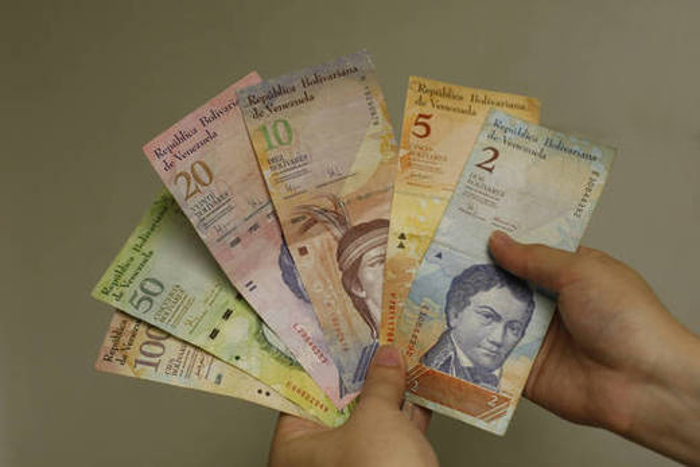CARACAS Venezuela (ViaNews) – There is currently a climate of anxiety in the country about the complications to acquire cash. Given the economic measures announced in recent months by the national executive regarding the monetary cone (money belonging to the same currency), 5,000; 10,000; 20,000 and 100,000 Bolivares Fuertes (VEF) banknotes were added, freely circulating in the national territory. In a matter of months, the largest denomination banknote was reached exponentially, by the implicit dollar, reaching an increase of 40% in just five days, according to the Dollar Today website.
This means that economic measures announced by the national executive might have had unfavorable consequences, due to the context in which they have been implemented. One of them, and perhaps the most visible is given by high inflation rates and especially their exponential growth since 2013 and the fall of Venezuelan oil prices in 2014.
José Guerra, the President of the Permanent Commission of Finance and Economic (Comisión Permanente de Finanzas y Desarrollo Económico de la Asamblea Nacional) propose that by the end of 2017 inflation will exceed 1000%. This could mean a very dramatic financial instability reflected in food and medicine shortage.
Commentators in the Venezuelan media have been trying to explain this crisis in relation to the lack of efficiency of the public administration of the banking sector, by the pressure of the “international community”, and the financial blockade of the United States on Venezuela (which some say is intended to force a change in government).
The sharp devaluation of cash still has a direct impact on the daily lives of Venezuelans, while it is increasingly difficult to withdraw money deposited in bank accounts. This means that due to the scarcity of paper money and its value in the market, the population has to go to the banks practically every day, so to have enough cash to cover basic expenses, such as public transport which does not admit another form of payment. In addition, electronic cashiers for cash withdrawals operate halfway through, to obtain 12,000 Bolívares Fuertes it is necessary to queue up long lines and spent a great part of the day in such task.
When cash shortages initiated, debit and credit cards collapsed due to the saturation of payments made by the people as a way to buy in formal and informal shops. This has generated certain perversions such as forcing people to pay in cash, and if you don’t have the money, they allow you to pay by credit card charging a commission of 10, 15 or 20% of the purchase cost. Such irregularities have now been standardized.
The Government or a Website: Who has more power over the Venezuelan economy?
Cash advance is another irregular and illegal strategy generated by traders. This means that the merchant sells money by collecting a percentage, such as when 100,000 in cash is given in exchange for paying 120,000 Bolivares Fuertes.
In December 2016, the political and economic relations between Colombia and Venezuela were decisive. The border with the sister country might have been used as a territorial way to destabilize the national currency by “supposed Colombian mafias storing paper money to destabilize the country’s economy”, said the Venezuelan President Nicolás Maduro. One year later, the conflict persists and the government extends the validity of the same ticket for the tenth time, establishing that it will have to leave circulation on January 20, 2018. In 2016, it was the currency cone’s largest denomination banknote, being widely used by the Venezuelan population for Christmas time.







